
India's rubber imports to increase: expert
PTI Indian tyre manufacturers are actively seeking the supply of natural rubber from South-East Asian producers due to a slowdown in domestic production and increase in demand, industry officials said on Monday.India’s rubber industry is also expected to do hedging and risk management on Singapore Commodity Exchange (SICOM), prices set by which are used as a benchmark for rubber export from South East Asia.“More Indian tyre manufacturers and rubber consumers have been reaching out to South-East Asian rubber producers to secure supply,” said Tan Tee Yong, Director for Rubber Commodities at Singapore Exchange (SGX), the parent group of SICOM.He noted that Indian rubber-linked companies have set up offices in the midst of Singapore's global rubber trading hub, led by major producers.“The supply gap ...
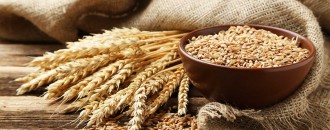
Wheat harvest season expected to bring down imports
The Dollar Business Bureau India has of late emerged as one of the biggest net importer of wheat, buying over five million tonnes since mid-2016, the country’s biggest annual purchase in over a decade. Last year, the government had focused on importing wheat in a colossal quantity in order to meet the rising demand of the commodity in the domestic market. India’s total wheat production registered a shortfall in the last two years due to unfavourable weather conditions. This year’s production, however, seems to be meeting the domestic expectations, as the government is also looking to cut down on the inbound shipments of the commodity as the harvest season approaches in April. The government will contemplate over the future purchases of wheat, depending upon the ...
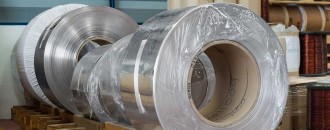
TVS Group to invest Rs. 750 cr in India, US
The Dollar Business Bureau TVS Group flagship Sundaram-Clayton Ltd. (SCL) on Thursday announced it will invest about Rs.750 crore to establish its first overseas plant in the US as well as expand its facilities in India. The leading manufacturer and supplier of aluminium products will invest Rs.400 crore over the next three years in the Indian market to cater to the multifold growth of this segment in the market. The company’s investment in India would enhance its domestic production capacity to 70,000 MT from the current 60,000 MT. SCL has four manufacturing facilities across the country. The company has planned to invest $50 million (about Rs.350 crore) to establish a plant in the US. Its US facility will be set up on a 50-acre ...
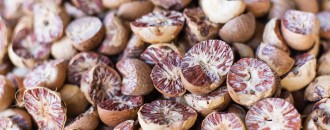
Minimum import price of areca nuts enhanced
The Dollar Business Bureau The government today announced an increase in the minimum import price (MIP) of areca nuts by Rs.89, from existing Rs.162 to Rs.251 per kg, to encourage domestic producers and discourage low-cost inferior-quality imports of the product from the neighbouring countries. In its latest notification No.35/2015-2020, dated January 17, 2017, the central government amended the import policy of areca nut under Exim Code 080280 of Chapter 8. It should be recollected that in June 2015 too the government had increased the minimum import price of areca nuts by Rs.52 to Rs.162 per kg. In an official statement then released the government had specified, "On account of unabetting import of areca nut from neighbouring countries such as Indonesia and Myanmar taking the advantage of low import duty ...
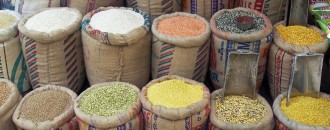
Paswan sees bumper pulse output this year, warns hoarders
PTI The country will see a bumper pulse production this year leading to a fall in prices and hoarders will not stand to benefit, Food Minister Ram Vilas Paswan on Thursday said as he asked them to offload their stocks. Singling out hoarders and blackmarketeers for the sharp rise in retail prices of pulses, he felt that the states did not take stringent action against them. "The country will have a bumper production of pulses this year and hoarders will not get anything," Paswan said on the sidelines of an event here. "If hoarders are thinking that they will sell pulses at higher rate, then forget it. They should sell their stocks in the open market as production will be high this ...

CIL looks to produce 71.77 MT of coking coal by 2019-20
The Dollar Business Bureau Coal India Ltd. (CIL) has set a target to produce 71.77 million tonnes (MT) of coking coal out of its total production of 1,000 MT by 2019-20. Coking coal production stood at 53.8 million tonnes in 2015-16, Coal Minister Piyush Goyal said on Thursday. The initiative aims at reducing imports of coking coal. "The enhancement in domestic production of coking coal is envisaged to reduce coking coal imports. However reduction of coking coal imports totally would not be possible due to the constraint of availability of metallurgical grade coal from domestic sources", he said in a written reply to a question in the Lok Sabha. On Thursday, Goyal chaired a Parliamentary Consultative Committee meeting to review the implementation of mine closure ...
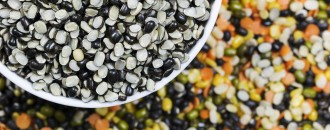
India's pulses import jumps 50% to Rs.25,500 cr in FY16
The Dollar Business Bureau India’s imports of pulses increased by 50 percent in terms of value to Rs.25,691 crore in the last fiscal of 2015-16, with imports totaling 5.8 million tonnes. India imported 4.58 million tonnes of the major kitchen staple amounting to Rs.17,063 crore, said S S Ahluwalia, Minister of State for Agriculture in a written response to the Upper House. He said, that the country has a buffer stock of 69,000 tonnes of pulses at the closing of the month of July 2016. Stating the reasons for the decrease in the output of pulses, the minister said, the output of pulses dropped to 17.06 million tonnes in crop year (July-June) 2015-16 compared to 17.15 million tonnes in the preceding year ...
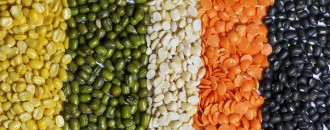
Govt. hikes MSP for pulses to boost production
The Dollar Business Bureau The government on Wednesday hiked the minimum support price (MSP) of pulses by up to Rs. 425 per quintal for the year 2016-17 to boost domestic production and check price rise.It has also announced a bonus on the cultivation of pulses and oilseeds, payable over and above the agreed MSP, in order to incentivise the cultivation of these items.The decision to raise MSP was taken after Commission for Agricultural Costs and Prices (CACP), which considers the production cost, domestic and international prices, overall demand and supply, inter-crop price parity, effect of the price policy on economy, and terms of trade between agricultural and non-agricultural sectors, came out with the MSP recommendation for kharif crops 2016-17. Other factors, ...


